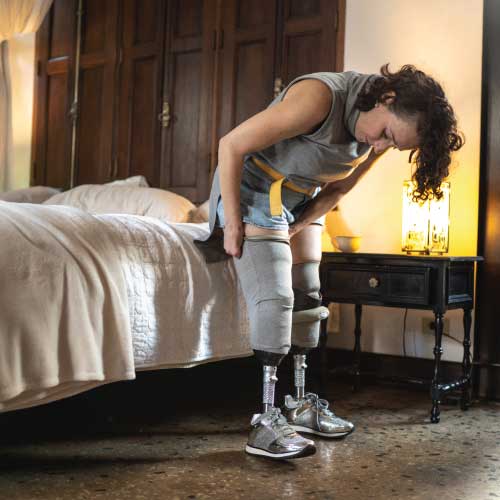Data from National Limb Loss Registry Expected to be Online in 2021
Initial data from the National Limb Loss and Preservation Registry—a project expected to generate the first comprehensive repository of statistical data about limb loss—is scheduled to go online at some point this year.

The limb loss registry aims to establish the number of Americans who live with limb loss and have preservation procedures. Then it aims to improve the prevention, treatment, and rehabilitation activities for the amputee population. According to the initial timeline, the registry should be fully operational by 2023.
At the helm of this enormous undertaking is Kenton Kaufman, Ph.D. Dr. Kaufman is a veteran investigator of limb amputation and prosthetic limbs. He's on the Medical Advisory Board of Prosthetics 2020, an American Orthotic Prosthetic Association initiative. He recently completed the most extensive study to date on microprocessor-controlled prosthetic knees.
In fall 2018, Dr. Kaufman received a $5 million five-year contract from the National Center of Medical Rehabilitation Research in the National Institute of Child Health and Human Development to develop and launch the National Limb Loss and Preservation Registry.
This project promises enormous potential benefits for amputees in the US. The data will produce new insights about amputees' financial status, health status, mobility, overall quality of life, and other indicators. This data will be instrumental in creating better solutions to address the challenges of living with limb loss.
In an interview with 'Living With Amplitude,' Dr. Kaufman said that the registry will help the federal government create better healthcare delivery policies. The data can help measure and standardize patient outcome data, which are vital to helping policymakers understand what American amputees need.
To build the registry, the team is consulting with different stakeholders, including representatives of manufacturers of prosthetic devices, insurance providers, researchers, and patients.
The team is talking to hospital medical centers, prosthetists, and the patients themselves to collect the data. However, Dr. Kaufman noted that 70% of lower-limb amputees don't get a prosthetic limb, which means they can't rely solely on prosthetists' information. They are considering working with the Amputee Coalition or reaching out to the patients themselves through data gathered from the hospitals. With the latter, the team can talk directly to the patients about their outcomes.
Aside from helping policymakers, the registry also makes it possible to look at health disparities, whether geographic, racial or gender. According to Dr. Kaufman, seeing discrepancies is crucial because it will enable researchers and policymakers to see public health gaps and apply the correct measures to address them.
As of December 2020, the committee is focused on getting the security certification. This will be followed by collating information from hospitals and prosthetists. The committee is working with health record vendors to ensure the accuracy and speed of this step. After both tasks are finished, the committee will focus on building the patient portal.
What do you think of this project? Please share your thoughts with us in the comments section.










































































